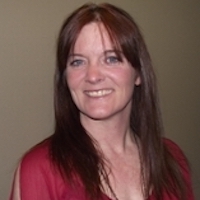Shawna Lee
Applied Psychology
From the time my brother received a diagnosis of schizophrenia when I was 12 years old, I have felt the social injustice that is deeply entrenched in the ignorance of mental health. Nearly 30 years later, with an established career in both children’s mental health and early childhood education, I continue to witness misguided notions about mental health by children and educators alike. The need for societal and professional mental health literacy is pervasive, and is the inspiration for my doctoral pursuit.
I approach my PhD with over 18 years of experience in the mental health and early childhood education sectors. I have provided leadership in chairing the clinical transformation of 0-6 Children’s Mental Health Services for the largest children’s mental health agency in Ontario, and have received international recognition for innovational implementation of school-based mental health programs for parents and educators in York Region. My career goal is to bridge the gap between research and practice in order to influence systemic change in mental health prevention and intervention.
I earned a Masters in Early Childhood Studies at Ryerson University. My Masters thesis was a critical discourse analysis of four key policy documents from the Ontario Ministry of Education, which evaluated how children's mental health is represented, characterized and supported. Currently, I am a third year PhD Candidate in Applied Psychology in the Faculty of Education, University of Western Ontario, Canada. My supervisor is Dr. Jacqui Specht, Director, Canadian Research Centre on Inclusive Education, Faculty of Education. The research I am undertaking for my PhD dissertation investigates the Positive Child Care Program (PCCP), an innovative application of the evidence based Triple P Positive Parenting Program for use in early childhood education environments. The Triple P Positive Parenting Program is being used in 25 countries worldwide, and has over 30 years of empirical evidence as multi-level, multi-disciplinary approach to parenting (www.triplep.net), and is the United Nations leading recommended program for evidence based parenting (UNODC, 2010). Adapting this program to early childhood settings seeks to ascertain changes in Early Childhood Educator’s effectiveness, confidence and competence in utilizing skills and techniques to guide children’s behaviour and support social-emotional competence of young children, as well as to identify strengths and barriers which influence program fidelity and implementation.

Jacqueline Specht, PhD
Supervisor


